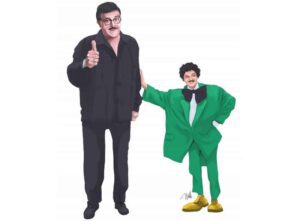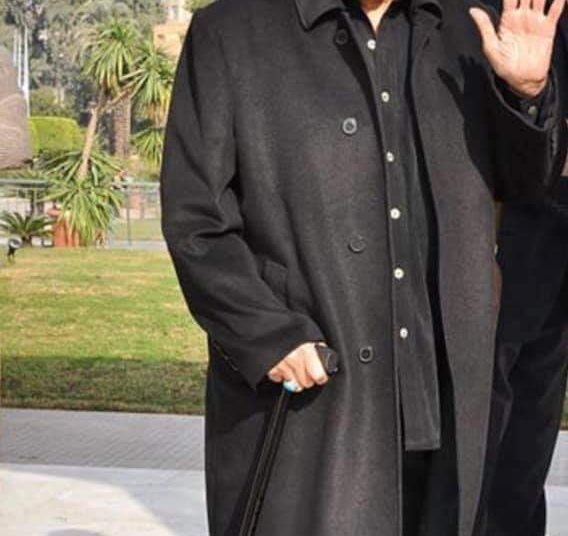The mere mention of Samir Ghanem’s name is enough to inspire joy and happiness. Since he launched a thespian career in the early 1960s, Ghanem, who died last week aged 84, has been a landmark in the realm of comedy not only in his homeland, but across the Arab world as well.
He made a big name in comic films, stage shows, television and radio serials as well as animated cartoons. No wonder, he was nicknamed the “king of laughter”, “depository of joy” and “companion of happiness”. His popularity has survived changing tastes, thanks to his glowing creativity and unique comic style.
Born in January 1937 in the Upper Egyptian city of Assiut, Ghanem was the son of a strict police officer. The iconic comedian disclosed in a TV interview that his legendary sense of humour was inspired by his mother.

Having been dismissed as a police cadet for failing studies, Ghanem enrolled at the Alexandria University’s agriculture school where his acting gifts unfolded. After Ghanem’s graduation, TV director Mohamed Salem picked him along with two then budding comics: George Sedhum and el-Deif Ahmed, who formed together a stand-up comic group dubbed the “Theatrical Trio”.
The group soon rose to fame due to their comic stand-ups performed live at concerts, funny anecdotes, and light-hearted performances in a host of films and stage comedies.
The trio also were the first in 1968 to present the TV fawazeer, a riddle show, which earned them wider popularity. Amid the gloom that engulfed Egyptians after the shattering military defeat by Israel in the 1967 war, the trio presented “Tales”, a two-act comedy that proved popular and uplifting.
The group broke up after el-Deif died in 1970 aged 32. However, Ghanem and Sedom co-operated in several comedies, regarded among the most popular in the Arabic theatre. Their legacy included the hit comedies “Music in the Eastern Quarter” staged in 1971; “The Married Couple” in 1978; and “Hi Doctor” three years later.
Since the 1970s, Ghanem had been a frequent face in most film comedies in Egypt. In 1983, he collaborated with famous TV director Fahmi Abdul Hamid on the fawazeer show, portraying Fatouta, a character that sent his popularity soaring.
The show was screened during the Muslim month of Ramadan when viewing rates usually peak in Egypt and the Arab world.
The success of the show encouraged the duo to continue the TV fawazeer in the following years. Thanks to their collaboration, the riddle show became for years a feature of the Ramadan television in Egypt. Ghanem last starred in the TV fawazeer in 1994.
In recent years, Ghanem shifted his sights to television, performing in several comic serials.
Most entertainment critics agree that Ghanem boasted a comic style of his own based on improvisation that endeared him to successive generations of fans. The funnyman had trans-generational gifts that have made his professionalism and fame ageless.
While performing in a stage comedy, electricity went out, but he continued to entertain the audience for 12 non-stop minutes until lights came back, according to dramatist and producer Ahmed el-Ebiari.
“He presented a new play in the dark while people collapsed from laughter!” el-Ebiari told a local TV station.
“Ghanem had an unrivalled skill of improvisation,” said well-known critic Tareq el-Shenawi, who wrote a book on the late comedian.
“He did not achieve much success in cinema because the film cameras restrained his improvisational skills,” el-Shenawi added. “Therefore, he had the latitude to achieve success at the theatre.”






Discussion about this post